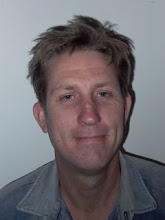I've always been seen as a 'sunny' person, maybe its because of my disconnect with reality. I've always preferred my own company even though I like being with other people; they are sooo weird it amuses me no end. But that is on the good days. On the bad days its very frustrating and the 'tut' factor rises to a crescendo.
My wife likes to remind me that 'I'm not listening' although I constantly love to tell her how she should feel and think. Certainly not a dialogue, much more Senges' notion of discussion. Listening to other people is dangerous - it reminds you that not everyone shares your opinion and having a big brother that liked to use violence to ensure his options were the ones selected has conditioned me to avoid the 'difficult' conversations, or openly disagree with people I don't respect.
This has been a very negative strategy, both for myself and those I collaborate with. Controlled conflict can be a very positive thing. The problem with not speaking your mind, especially as an Introvert (in the MBTI sense) means that you can be viewed with suspicion.
When I'm depressed I shut down. If I'm really angry I can't even look at someone, and sometimes not saying anything conjures up the worst scenarios imaginable in the minds of others. This is when I need to reach out. As a person who has a well developed sense of criticism, I fear exposing my weaknesses will lead to exploitation rather than seeking aid. I know now with my three year-old that she needs me the most when she is unhappy, and I need to reach out to my support when I find myself in similar situations.
The downside of being 'up' most of the time is that the lows are very deep. I was amazed at University the other day with the capacity for Heather to find positives in negatives. She sent out a survey where only 2 people out of 27,000? members responded. I would have given up in despair (my resilience can be very low when confronted by hardship) but she found the strength to look at other avenues and draw conclusions from the non-responses.
The Buddhist's have a saying that the glass is neither half full nor half empty, it is what it is. Acceptance of reality is ultimately not delusional, and all the problems that that can entail.




